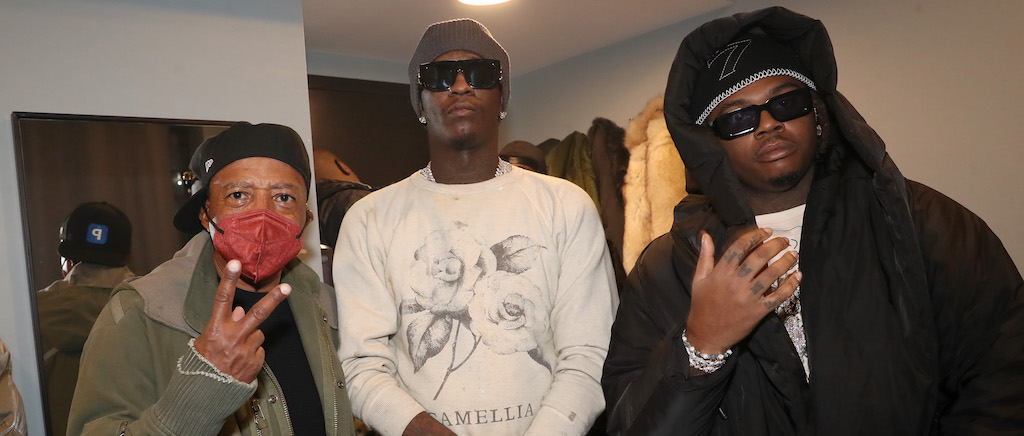As the Tory Lanez trial nears its end, the YSL Rico trial in Atlanta is gearing up to begin. On January 3, 2023, Young Thug and his remaining co-defendants will return to court in Fulton County, Atlanta. Over the last week, several YSL Records artists took plea deals to be released from jail. As it stands, Gunna, Unfoonk, Slimelife Shawty, Lil Duke have all taken plea deals. Furthermore, legal experts expect more of Thug’s co-defendants to follow suit before the trial begins.
Atlanta-based beat reporter George Chidi has been covering this case since new of the RICO indictment first broke. According to him, the plea deals prove that the D.A. is mainly focused on convicting Young Thug. Needless to say, Thug and his attorney, Brian Steele, have a huge challenge ahead of them. Prior to the start of the trial next month, Young Thug’s defense team has submitted their list of expert witnesses.

Read More: Metro Boomin Details Process Working With Young Thug
Young Thug’s defense will call upon Hip-Hop historians, a drug counselor, and more.
According to HipHopDX, Young Thug’s list of witnesses will consist of experts from multiple fields. Thugger’s lawyer will reportedly call upon a cell phone expert, a drug treatment counselor, and an expert in video analysis. In addition to those more traditional experts, Thug’s defense has also listed Hip-Hop historians and lyrics experts as witnesses.
One of the most notable Hip-Hop witnesses listed is Dr. Erik Nielson. An active associate professor of liberal arts at the University of Richmond, Nielsen is perhaps best known for co-authoring Rap on Trial: Race, Lyrics, and Guilt in America with Andrea Dennis in 2019. In addition to Nielson, Thug’s defense will also call upon two other college professors listed as lyrics experts: Dr. Adam Dunbar and Dr. Charis Kubrin.
Read More: Gunna Will Plead The 5th If Called To Testify Against YSL
Since Thug’s lyrics will be admissible in court, his legal team’s unique strategy might actually prove effective. Of course, we’ll have to wait until the trial begins in January to see.
Until then, stay tuned to HNHH for more updates on the developing YSL Rico situation in Atlanta. And as always, let us know your thoughts about the case in the comment section below.
[via]






